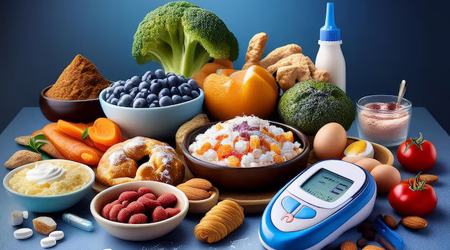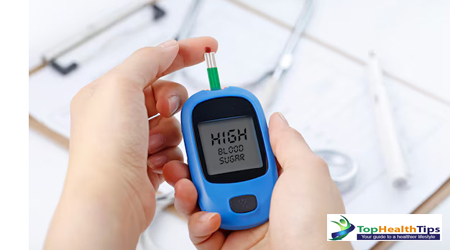Insulin sensitivity is crucial for overall health, as it directly impacts how effectively your body uses glucose for energy. Low insulin sensitivity, known as insulin resistance, can increase the risk of developing type 2 diabetes, obesity, and heart disease. By adopting specific dietary choices, lifestyle changes, and healthy habits, you can boost insulin sensitivity and improve metabolic health.
What is Insulin Sensitivity?
Insulin is a hormone produced by the pancreas that helps cells absorb glucose from the bloodstream for energy. When your body is insulin-sensitive, it efficiently utilizes glucose, keeping blood sugar levels stable. In contrast, insulin resistance means cells do not respond well to insulin, leading to elevated blood sugar and potential long-term health problems.
Why Improve Insulin Sensitivity?
- Prevents Type 2 Diabetes: Enhancing insulin sensitivity lowers the risk of type 2 diabetes by maintaining healthy blood sugar levels.
- Aids in Weight Management: Improved insulin sensitivity helps in fat metabolism and weight control.
- Boosts Energy: Better glucose utilization results in more consistent energy levels throughout the day.

Foods to Boost Insulin Sensitivity
Your diet plays a significant role in regulating insulin sensitivity. Incorporating the following foods can help improve your body’s response to insulin:
1. High-Fiber Foods
- Examples: Whole grains (oats, quinoa), legumes (lentils, beans), vegetables (broccoli, spinach).
- Why: Dietary fiber slows down glucose absorption, leading to stable blood sugar levels and reduced insulin spikes.
2. Healthy Fats
- Examples: Avocados, olive oil, nuts, seeds.
- Why: Monounsaturated and polyunsaturated fats enhance insulin sensitivity by reducing inflammation and improving cell membrane function.
3. Lean Protein Sources
- Examples: Chicken, fish, tofu, legumes.
- Why: Protein slows down carbohydrate digestion, preventing rapid blood sugar spikes and promoting satiety.
4. Low-Glycemic Index (GI) Foods
- Examples: Berries, apples, sweet potatoes, whole grains.
- Why: Low-GI foods cause a gradual increase in blood sugar, avoiding insulin surges and supporting better glucose management.
5. Fermented Foods
- Examples: Yogurt, kefir, kimchi, sauerkraut.
- Why: Probiotics in fermented foods improve gut health, which is linked to improved insulin sensitivity and glucose metabolism.
6. Cinnamon and Spices
- Why: Cinnamon contains bioactive compounds that may improve insulin sensitivity by enhancing insulin receptor function on cells.



Lifestyle Habits to Improve Insulin Sensitivity
In addition to dietary changes, certain lifestyle habits can significantly enhance insulin sensitivity.
1. Regular Physical Activity
- Why: Exercise, especially strength training and high-intensity interval training (HIIT), increases muscle glucose uptake, reducing insulin levels.
- Tips: Aim for at least 150 minutes of moderate aerobic activity (e.g., brisk walking) or 75 minutes of vigorous activity (e.g., running) weekly, combined with strength training twice a week.
2. Maintain a Healthy Weight
- Why: Excess body fat, particularly around the abdomen, contributes to insulin resistance. Losing even a small percentage of body weight can significantly enhance insulin sensitivity.
- Tips: Focus on a balanced diet, regular exercise, and proper portion control to achieve sustainable weight loss.
3. Get Adequate Sleep
- Why: Poor sleep disrupts hormonal balance, leading to increased insulin resistance.
- Tips: Aim for 7-9 hours of quality sleep per night. Establish a regular sleep routine and create a restful environment by reducing screen time before bed.
4. Stress Management
- Why: Chronic stress elevates cortisol levels, which can interfere with insulin function.
- Tips: Practice stress-reducing techniques such as yoga, meditation, deep breathing exercises, or engaging in hobbies.
Additional Tips to Enhance Insulin Sensitivity
1. Try Intermittent Fasting
- What: Intermittent fasting involves cycling between periods of eating and fasting.
- Why: Fasting helps reduce insulin levels and can improve insulin sensitivity by allowing cells to process glucose more efficiently.
2. Incorporate Magnesium-Rich Foods
- Examples: Spinach, almonds, dark chocolate.
- Why: Magnesium plays a role in glucose metabolism, and a deficiency may impair insulin sensitivity.
3. Consider Supplements
- Options: Chromium, berberine, and alpha-lipoic acid.
- Why: Some studies suggest these supplements may help enhance insulin sensitivity. However, consult with a healthcare provider before adding supplements to your routine.
Monitoring Insulin Sensitivity
Regular monitoring of blood sugar levels and insulin sensitivity markers can help track your progress:
- Fasting Blood Glucose: A basic indicator of glucose metabolism.
- Hemoglobin A1c: Measures average blood sugar levels over three months.
- HOMA-IR (Homeostatic Model Assessment of Insulin Resistance): An advanced test to assess insulin sensitivity.
Conclusion: Small Changes, Big Impact
Improving insulin sensitivity is achievable with simple yet consistent changes to your diet and lifestyle. By focusing on whole foods, regular exercise, stress management, and healthy sleep patterns, you can enhance your body’s insulin response, promoting better energy and reducing the risk of metabolic diseases. Remember to consult with healthcare professionals for personalized advice tailored to your need.
Related post for Lifestyle & Exercise>>>
References:
- Wilcox G. (2005). “Insulin and Insulin Resistance.” Clinical Biochemist Reviews. 26(2): 19–39.
- Esposito K., et al. (2014). “The Effect of Mediterranean Diet on Insulin Sensitivity.” Diabetes Care. 37(4): 912-917.
- Kramer CK, et al. (2011). “The Role of Exercise in Type 2 Diabetes.” Diabetes Metab Res Rev. 27(1): 11-14.
- Hallsworth K., et al. (2011). “Dietary and Lifestyle Interventions in the Management of Insulin Resistance.” Nutrition & Diabetes. 1(8): e13.
- Cornelis MC., et al. (2012). “Magnesium Intake and Risk of Insulin Resistance.” Diabetes Care. 35(4): 721-728.




